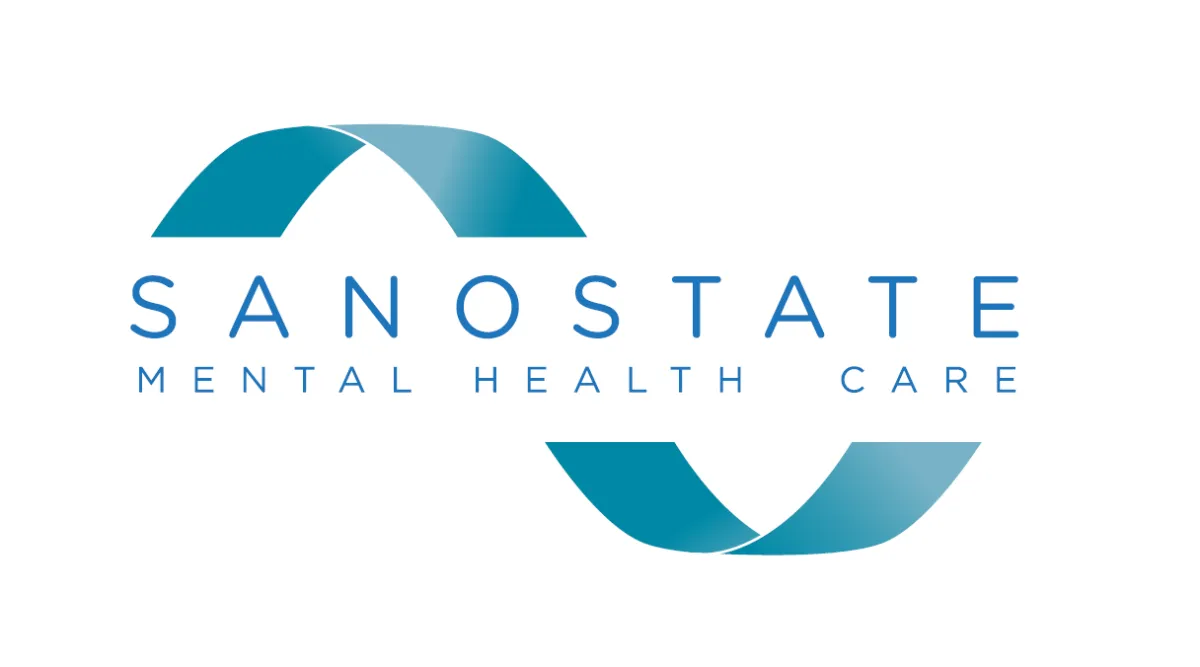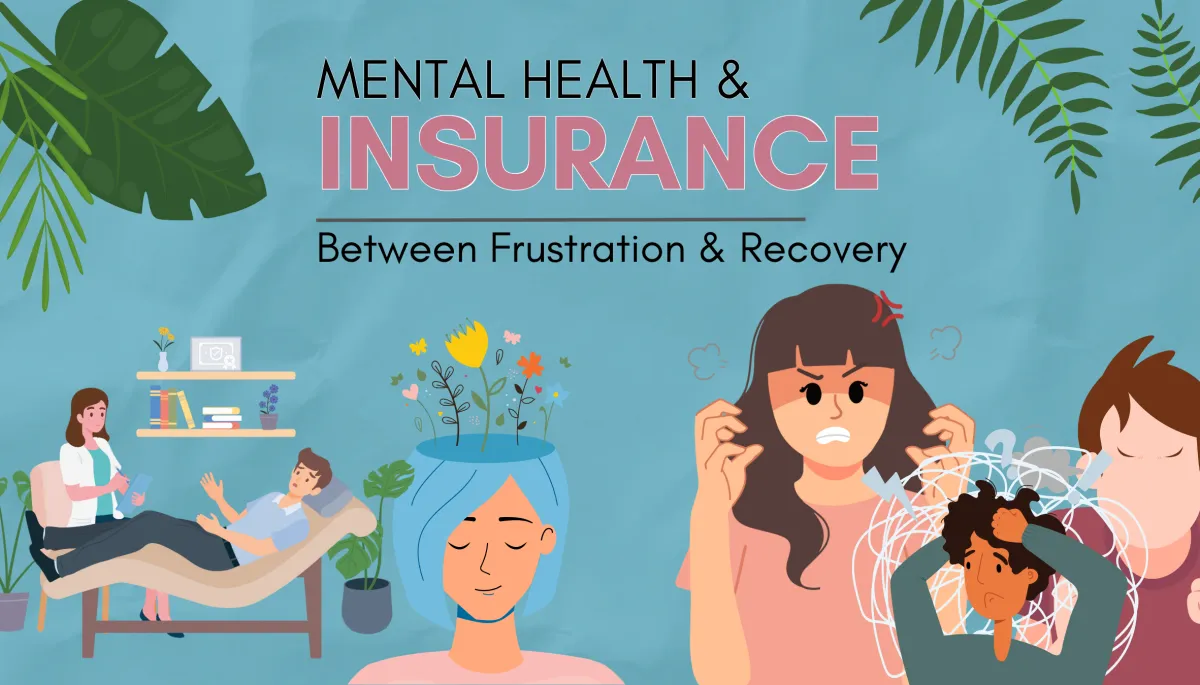General Inquiries: (587) 333-6349 - info@sanostate.com



Mental Health and Insurance: Between Frustration and Recovery
“Do not let the relationship between you and your insurance company overtake your life! ”
Mental Health and Insurance: Between Frustration and Recovery
By 10 AM this morning, I already had two clients express their incredible frustration with insurance companies to me. The company that is supposed to be helping them to get better is actually making their mental health worse! I have to admit, in my professional experience, when individuals have some injury that impacts their mental health, the insurance companies very rarely provide a smooth process for recovery. In the majority of cases, they become at least a factor in worsening mental health for my clients.
As I reflect on why this is the case, I can think of a few reasons.
First, it seems a conflict of interest that the company that is supposed to pay, decides whether or not they will pay. Imagine going to a bank, and they regularly deny you from withdrawing your funds. Or imagine ordering a pizza, and then the company periodically decides not to send you what you ordered. Yes, this is a gross oversimplification of the issue, but it helps to put into perspective the frustrations I see among many clients I work with.
Next, mental health does not easily fit into the medical model.
Insurance companies often require me to give a DSM-5 diagnosis for what the client is suffering from. The issues with this include the complexity of one’s mental health. While a diagnosis of something like diabetes can very clearly help us understand the underlying issues one might go through, when it comes to mental health, these issues are not easy to place in a diagnostic category much of the time.
Also, in mental health, most diagnoses are based on subjective measures. For example, emotions like pain and sadness are not measured easily by another person. We have to rely on the client’s opinion and will ask, “on a scale of 1-10, how much does it hurt?” Then, how do we compare a 5/10 from one person to the next, and how do we know what that might mean? This subjectivity is the cause of many headaches, with clients trying to “prove” their mental health issues to insurance companies.
Prognosis of Mental Health Issues
Again, compared to other health problems, mental health is far more challenging to predict if, how, and how fast someone will recover. It is not uncommon for people to be off work for several years due to mental health issues. However, it starts to be very difficult for a company to hold a job position, or for an insurance company to continue to pay for treatments, without knowing how long a leave may continue.
As they pertain to psychotherapy, prognosis and timelines are a double-edged sword. Setting goals and having expectations of improvement can often be a great way for individuals to push themselves toward recovery. However, I have also seen them increase anxiety, panic, and worsening of symptoms. So, this becomes a delicate topic that requires tact and empathy. Case managers working at insurance companies typically do not have academic backgrounds that lend to understanding how best to approach these situations.
A Holistic Approach to Treatment
There remains little doubt that holistic approaches to mental health benefit recovery. However, where does an insurance company draw the line? Striking a balance between what is likely to be effective, the associated costs, and what the client is comfortable with can be challenging.
I have seen an insurance company pay for a client to attend a costly, out-of-province addiction recovery program. This shocked me since the addiction was technically not covered under the “insured injury” since it was pre-existing. However, only following this treatment, did we see the client make a significant recovery towards returning to work. In my opinion, it was absolutely the right thing to do. But trying to convince an insurance company to pay for something like this seldom works.
Malingering
Oh, how I cringe when I hear this word! Malingering means exaggerating or pretending to be unwell to get some gain, such as getting out of work, receiving attention from others, or receiving monetary compensation.
This is such a complex topic because of how complicated it becomes. Let’s look at a spectrum; on the one side, person A fakes having headaches. They could even go so far as to say their headaches are so debilitating that they can’t work and get placed on paid leave. We don’t have any way to prove whether a headache exists. So, essentially, this person could have no headaches and fake their way into a situation where they don’t need to work for their pay.
On the other hand, Person B is actually suffering from debilitating headaches that are intense and constant. They could have the exact same test results as Person A, and we have no way to know.
Person A and Person B fall on the opposite sides of the spectrum. Most people fall somewhere in the middle. Imagine Person C getting hit by a car while crossing the street. As their recovery progresses, they learn that they won’t be able to work if their pain continues, and insurance will have to pay their salary. What do you think this knowledge will do to Person C’s recovery? Maybe they never liked that job anyway. At some point, we see their recovery blunted. Are they faking? Are they holding back on purpose? Or does it happen subconsciously?
The reality is that it could be any combination of those things. And how is an insurance company supposed to know? Thinking like this can help us understand why insurers sometimes come across as not trusting the client.
What is to be done?
Of course, we always hope the relationship between an insurance company and the client can work well. As we see with any relationship, there will be struggles and push and pull between the two parties. But here are things to consider:
Understand what you are entitled to. Insurance companies will likely not be forthcoming with all you can get through them. So, ask for things that will help in your recovery and for things that you need. Even if they may seem outlandish. Would a better bed be helpful? Do you need help making meals, or mowing the lawn? Could you benefit from a massage?
Work to get better! Be the master of your own life. There likely will be some part inside your head, at a subconscious level holding you back. Try to squash that as best as you can. Imagine your life if you didn’t need to rely on an insurance company for anything else. Push to get there, and make your life better.
Get an advocate or lawyer. Professional help can help you get what you are entitled to. Yes, there is a cost, but I have seen the cost of an advocate or lawyer be well worth it. Often it can mean the difference between $5k and $100k. Sometimes you have to ask the insurance company not to contact you, and only speak through your lawyer. In extreme cases, this can be done to help alleviate the ongoing stress you may be facing.
Do not let the relationship between you and your insurance company overtake your life! Limit the amount of time you spend communicating with them, and thinking about them. Keep it to the bare minimum. Fill the rest of your life with good things unrelated to your recovery. The insurance company isn’t thinking about you after hours. Don’t let your thoughts get consumed by them.
If this is an area where you could use support connect with us HERE or call 587-333-6349 💙
General Inquiries:
Our Locations:
Additional Resources:
About Us:
We strive for excellence in psychological treatment. We are committed to providing professional, caring, innovative, and research-based services.
© 2024 Sano State Taylored Psychology. All Rights Reserved.

